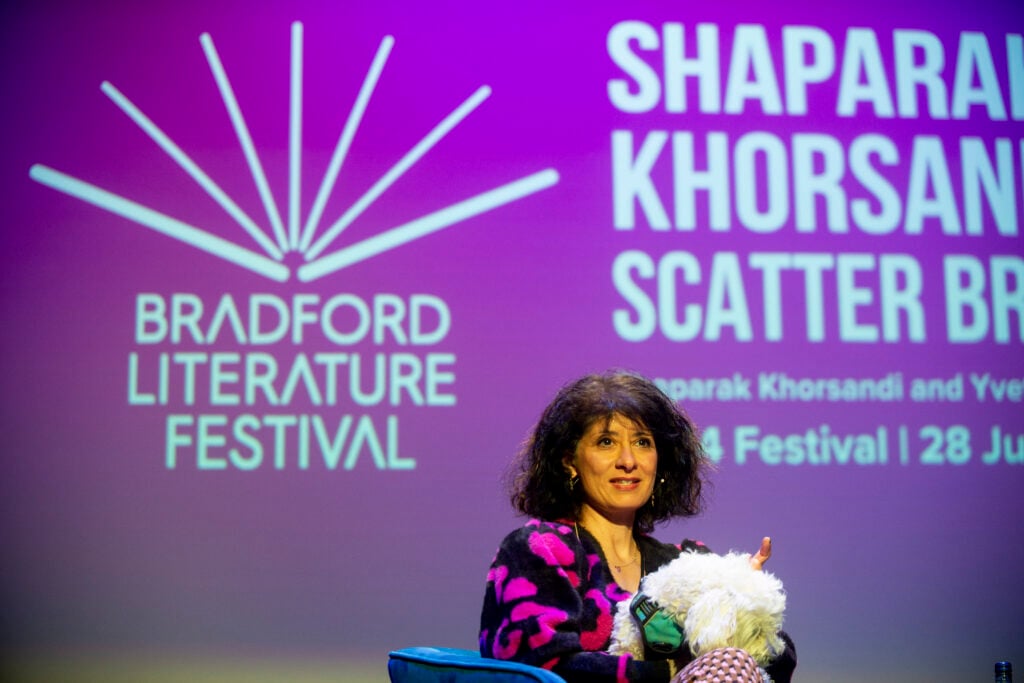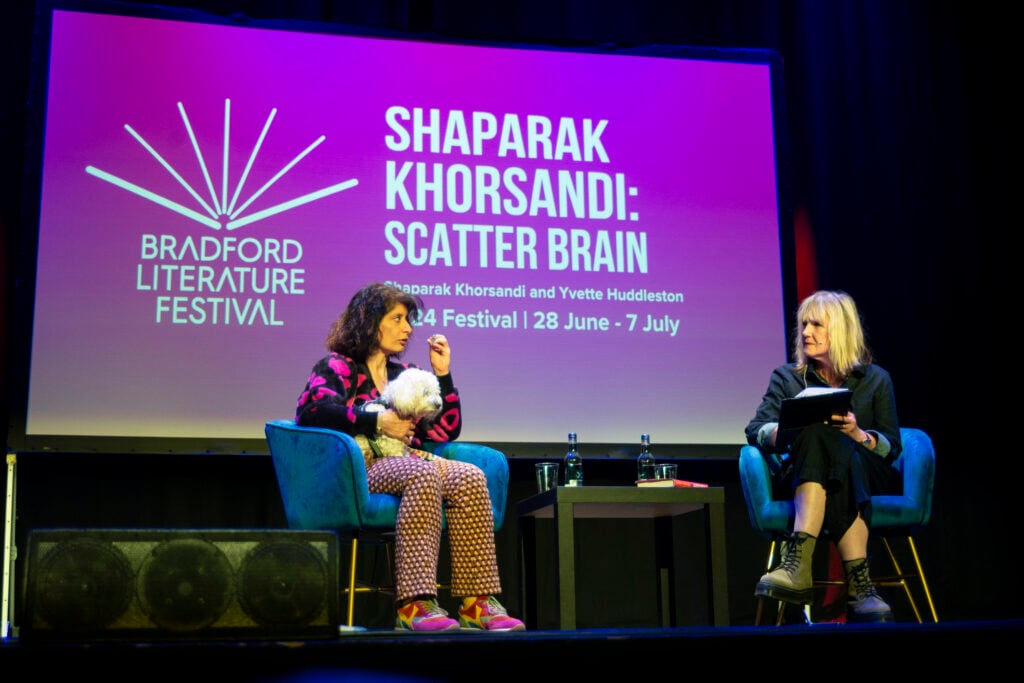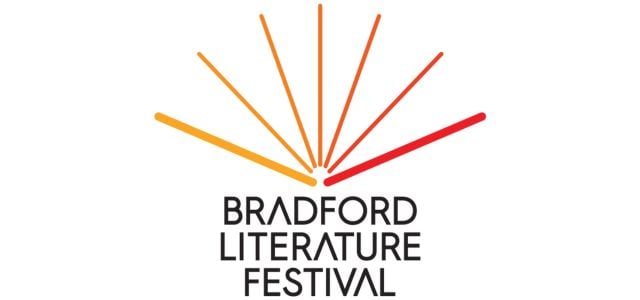Written by Rebecca Foster

Bradford Literature Festival was joined at St George’s Hall by Shaparak Khorsandi to discuss her latest book, Scatter Brain, which shares her rollercoaster ride of a life shaped by undiagnosed Attention Deficit Hyperactivity Disorder (ADHD). Also joining her on stage was her adorable dog, Jamie, who happily took to the spotlight and sat on her on lap for the duration. Host, Yvette Huddleston, shared how delighted she was to be in conversation with Khorsandi, and to delve into the details of her book.
Khorsandi described how she was diagnosed with ADHD in her late forties, after being previously told her symptoms stemmed from other issues including bulimia and binge drinking. Some of her other symptoms included hoarding, rejection dysmorphia, and emotional dysregulation, “I had tantrums for far longer than any of my children did”.
Khorsandi touched on how she was able to manage her symptoms pre-Covid lockdown as she had support from many amazing people in her life, “I live in a nest of feathers with the most incredible neighbours and community”. Lockdown put her ADHD symptoms into sharp focus as she was suddenly without her community.
She shared how taking the step to Google ‘ADHD psychotherapist’ was a game changer. “It changed our lives: me getting therapy specifically for ADHD. It’s not the ADHD that’s the problem, it’s not knowing you have ADHD”.
After getting support for ADHD, Khorsandi’s Bulimia and binge drinking ‘disappeared’. Khorsandi shared that it can still happen, but there’s no shame around it for her anymore. Her focus instead is to look at what’s gone wrong to reach that point and figure it out. She praised the importance of exercise, breathing techniques, and getting a good night’s sleep to help keep things under control, “breathing’s important… who knew!”.

Speaking about writing her book, Khorsandi reflected how “it’s the best thing I’ve done” as it helped her to write things down and go over her life experiences. Khorsandi shared how in the past she wouldn’t publicly or honestly talk about her ADHD. She masked symptoms, was overly polite, and was nervous about the “incredible hulk” of her emotions taking over. This all changed when she decided to share her diagnosis on X (then Twitter) and said anyone who wanted to chat about their ADHD was welcome to message her. This had an amazing impact; she was flooded with DMs, many of them from people of her generation who grew up in the 1970s and 80s when there was a heavy stigma around neurodiversity.

This led into a discussion of the education system in the UK, how it let down Khorsandi as a child and continues to let down many others who are neurodiverse. Khorsandi was a bright child who enjoyed, and was good at, English, French, and Sociology among other subjects. But she struggled with Maths and Science, subjects which no matter how hard she tried, just wouldn’t make sense. She shared how difficult it was as a child being told it’s your fault you’re not doing well at school, but that her ADHD meant “if I’m not interested there’s just no way out”. Khorsandi had expressed her dislike of the ‘attention deficit’ section in the name ADHD, as she can concentrate on something as long as she’s interested in the topic.
Khorsandi remembered when as an adult she bumped into one of her school teachers who told her, “you didn’t fail at school, you failed because we failed you”. She later described herself as a ‘geek without portfolio’ – someone who needed to find the right topics to dive into and be excited about. She’s now studying for a degree in psychotherapy, and loving it.
One teacher in the audience asked if there’s a danger to children being ‘labelled’ as neurodiverse. Khorsandi explained how, to her, being labelled as neurodiverse is no different to being ‘labelled’ short-sighted and being told you need glasses. She added, “have faith in those children who are ‘labelled’ to be able to spot those patterns in others when they grow up”, and support the next generation.

Audience members related strongly to the experiences and symptoms Khorsandi shared with us throughout the evening, with one guest expressing that “Reading your book was like a validation, as it’s my life story, too”. Khorsandi emphasised how it’s never too late to get a diagnosis and seek help to manage symptoms, sharing “my Dad’s eighty, and we are healing together”.
Huddleston reflected on the positives we can take away from the BLF evening with Khorsandi – the fact we are openly talking about ADHD and neurodiversity, and as a society becoming more understanding.
